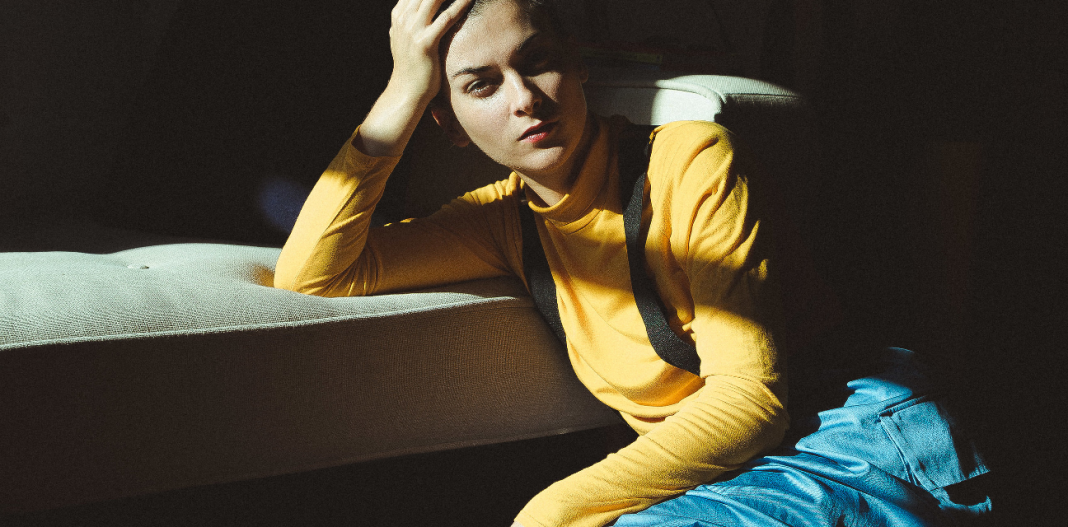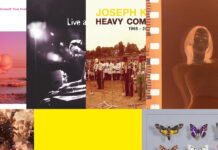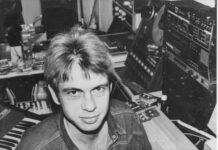Photo: Press (Julia Govor)
Julia Govor’s biography reads like a myth, but then again techno made stories like these possible. From the remote military town in Abkhazia where she was DJing on cassettes, Govor joined a marching band before relocating to Russia, where she collected her first experience in the techno scene. Nowadays, the Jujuka label founder is based in the US and tours internationally. Her controbution to our Groove podcast is a perfect blend of hardcore and happiness.
You have started out as a cassette DJ in your native Abkhazia. What kind of music were you DJing with – and how exactly can you mix with tapes?
Most of our tapes were Soviet/Russian pop music such as Alla Pugacheva, Sofia Rotaru, Janna Aguzarova and some music from America such as 20 Fingers and Gillette, 2 Live Crew, plus we had Madonna and even Prince. Nobody spoke English and we had no idea what those songs were about, we just liked the groove and it was only about dancing. We didn’t have a proper mixer, but we had a mic. Every time when a song was over me or my partner Astomur spoke on the mic to present the next song to the crowd. MCing was easy, it was rewinding the tape that was difficult. Those who didn’t like to dance were helping to rewinding the cassettes. “Wanna hang out in the DJ booth? – Great, help me with the rewinding some tape, here is a pencil for that!” Our dancing club, “Kloob”, was on every Saturday from 5-9pm; it was the only fun place for kids and young adults back in 90s in our military town.
-After moving to Russia – first Temruk and later Moscow – after the turn of the century, you’ve quickly grown into the scene. How did you experience the local rave community back then?
If you ask me what is my super power, I would say happiness. Any community loves positive and optimistic people. It took me one year to meet artists and musicians in Moscow, and after when I started my tv show about clubbing, DJs, rave, festivals, those connections really helped. People were very opened and welcoming, that was a time when anything was possible and everyone was energized. DJs were giving me their records, most of them being records from Kompakt and Plus 8, musicians were inviting me to studios, teaching me how to make rhythms. Music lovers – not professional DJs – who could afford a pair of Technics and records were teaching me how to mix records at afterparties at someone house. remember when all clubs were closed we were going to Tverskaya street, to an apartment where a guy – Vaduha – owned a SL-1200 Ltd Gold Color. We danced until Monday! His afterparties were always so fun, I liked to hang out on his balcony the most because I could see the beautiful Statue of Yuriy Dolgorukiy. I made interesting adventures from this time, and the classic story is I that even was arrested after dancing at the afterparty club Mix. Me and other 23 clubbers ended up drinking vodka with a police officer in YVD Orbatskoe. There will be a story about it in my next Jujuka comic!
Next week, you will launch your own Jujuka imprint together with the London-based Le.BLUE illustration team. How did the collaboration come about and how is your working process like?
I had mini contest online via my social media. I explained my idea and then there were at least 15 people trying to create the illustrations that I wanted. I had three stories for Jujuka already written and it was important for me that I find somebody who actually had a clue about clubbing. I wanted someone that could not just understand and feel my vision but also someone who is familiar with musicians like Jeff Mills and rave culture. It is important that they understand how to express Jujuka at all stages, for instance, when she is coming down after a party. My colleagueue Flaminia understood what I was looking for and so she introduced me to the London based Duo Le.BLUE. I went to London for a meeting with them. Matt and Loanne showed me a version for a chapter of Jujuka. It was a comic with Jeff Mills. It was exactly how I saw it in my mind but wasn’t able to explain it due to the language barrier. Still somehow they were able to create exactly what I envisioned. When I saw this, I started to cry. They did such a great job, its like the two went inside of my brain and drew everything exactly how I had imagined it. Fascinating. Now our working process is very easy, because we truly understand each other and we have the same vision for Jujuka. Our comics could be used as new and separate platform for music. Sometimes a visual component can make things heard in a stronger way. Our main idea is that Jujuka brings something completely fresh to the techno scene, it showcases a filtered version of reality. Sometimes different versions of reality are very important. They help us see and hear things in a different way. Jujuka offers this as well as a terribly honest and satirical insight into real and relatable experiences as a party-goer. Anyone that has been to a party can relate.
Which relationship do these stories have with the actual music?
Jujuka was born from my own personality. I wanted to write short narratives about the electronic dance scene and the experiences I had collected during my journeys in that world; as a DJ, as a producer, and of course, as a true raver. For example, Jujuka lives in the 909 District, the first release was made from 909 drum machine samples. I first found out about that gear when I watched Jeff Mills using the samples to create the rhythm. I was amazed. I love percussive techno, I like that elegancy and sophistication Jeff presents through his art. His music opened up a whole new universe for me.
You’ve once said that each of your DJ sets tries to follow a certain philosophy. What was the idea behind your contribution to our Groove podcast?
I gave up on philosophy! Music is constantly changing, the scene is changing, we are changing, with my mixes I just trying to present my taste and ability to make a connection between those crazy tracks. If even one person out of hundreds will feel something I am satisfied. In the end of the day its all about feelings.
Last but not least: Where can we see you live or behind the decks in the near future, and what are your plans as a producer and label owner?
I am going to South America in September: Mexico, Colombia and Ecuador and in October I am booked in Europe including ADE Netherlands, Switzerland, Germany, France, Russia. In November I am releasing a collaboration record with Jeroen Search on Pushmaster Discs.
Stream: Julia Govor – Groove Podcast 175
01. Jeff Mills – The Clairvoyant
02. Groovehead – Confusion on the ground
03. Julia Govor – Drama C
04. Aerothrob – Barracuda (Plastik Plankton Mix)
05. Teste – The Wipe
06. Jeroen Liebregts – Vloer
07. Kronos Device – The Engine (Instrumental Mix)
08. Storm – Art of Sync
09. Stranger – Partly Cloudy (Thermal Mix)
10. The Source Experience – Musaca
11. Acid Scout – Pot
12. Julia Govor – 1984
13. Hadone – Janvier Lol (Unreleased)
14. Julia Govor – June1 (Unreleased)
15. 4 Navigators – Trauma
16. The Stunned Guys – Beats Time (Neophyte Remix)





